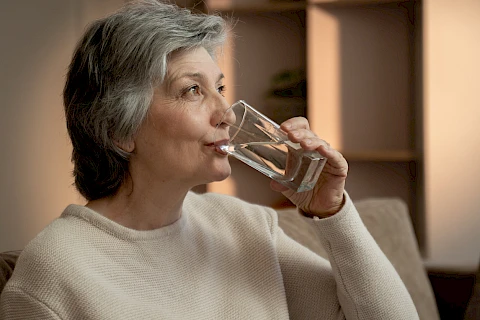
As we age, maintaining good health becomes more important than ever. For seniors, bladder health is a key area to focus on. A healthy bladder helps prevent infections and incontinence, which are common issues for seniors. One of the simplest ways to support bladder health is by staying properly hydrated. Let’s explore the connection between hydration and bladder health and offer practical tips to help seniors stay hydrated.
The Link Between Hydration and Bladder Health
Hydration is essential for many aspects of health, and bladder function is no exception. When you drink enough fluids, your bladder works more efficiently, flushing out bacteria and reducing the risk of urinary tract infections (UTIs). Good hydration also supports the muscles around the bladder, helping to avoid incontinence.
On the other hand, dehydration can cause various bladder problems. Without enough fluid intake, urine becomes concentrated, which can irritate the bladder lining. This irritation may lead to increased urgency or frequency in urination. Furthermore, dehydration can also make it easier for bacteria to grow, potentially leading to infections.
Tips for Staying Properly Hydrated
One of the most straightforward ways to stay hydrated is to drink water regularly. Seniors should aim to drink about 6 to 8 glasses of water a day. Instead of waiting until you feel thirsty, sip on water throughout the day to maintain proper hydration levels. Keeping a glass or bottle nearby as a reminder can be very helpful.
Foods can also contribute to your daily fluid intake. Many fruits and vegetables have high water content. For example, cucumbers, tomatoes, watermelons, and oranges are excellent choices for boosting hydration. Including these in meals or snacks is a tasty way to increase fluid intake without relying solely on beverages.
Caffeine and alcohol can negatively affect bladder health. Both substances can irritate the bladder and act as diuretics, meaning they increase urine production and can lead to dehydration. Seniors should aim to limit consumption of drinks like coffee, tea, and alcoholic beverages. If you enjoy these drinks, try to balance them with plenty of water.
Recognizing Signs of Dehydration
Symptoms of dehydration can include dry mouth, dark urine, fatigue, dizziness, and confusion. Since older adults are at higher risk for dehydration, monitoring these signs is critical, particularly in warmer climates where fluid loss can occur more rapidly due to sweating.
Encouraging Hydration in Seniors
For caregivers, ensuring that seniors stay hydrated can be challenging. Here are some strategies to make it easier:
- Set reminders for the senior to drink water every couple of hours.
- Offer a variety of fluids, including flavored water or herbal teas, to make drinking more appealing.
- Pair fluids with favorite activities, like having a small cup of tea with a book or movie.
Another effective approach is to make hydration a regular part of daily routines. For instance, drinking a glass of water with every meal or snack can naturally increase fluid intake throughout the day.
Get Help With Proper Hydration From Senior Helpers
Hydration plays a prime role in maintaining bladder health for seniors. By ensuring adequate fluid intake, seniors can reduce the risk of infections and other bladder issues. Implementing simple changes, like drinking more water, eating hydrating foods, and reducing caffeine and alcohol, can have a significant positive impact on overall health.
If you or your loved ones need personalized senior care and support in Byhalia, Coldwater, Hernando, Holly Springs, or Oxford, contact us at Senior Helpers Northern Mississippi. Prioritizing hydration today can lead to a healthier, more comfortable tomorrow.